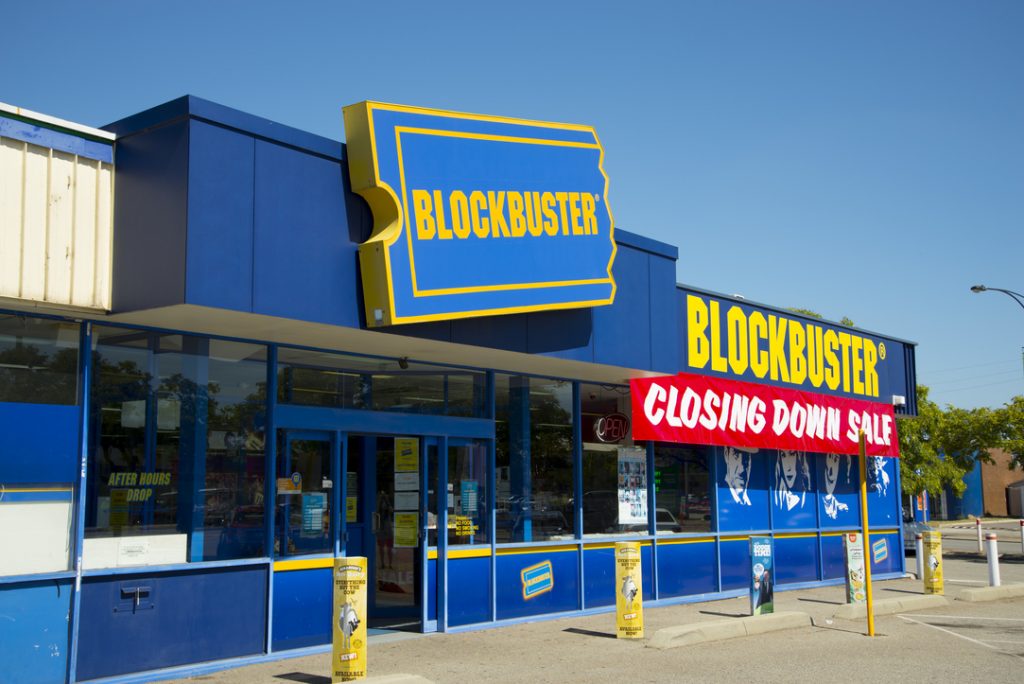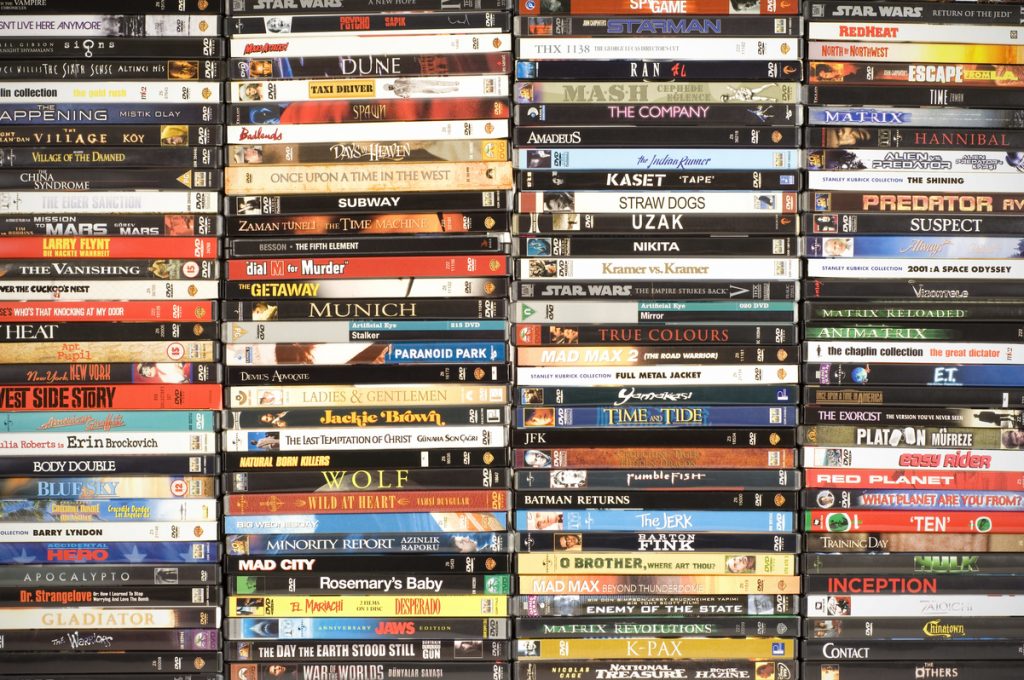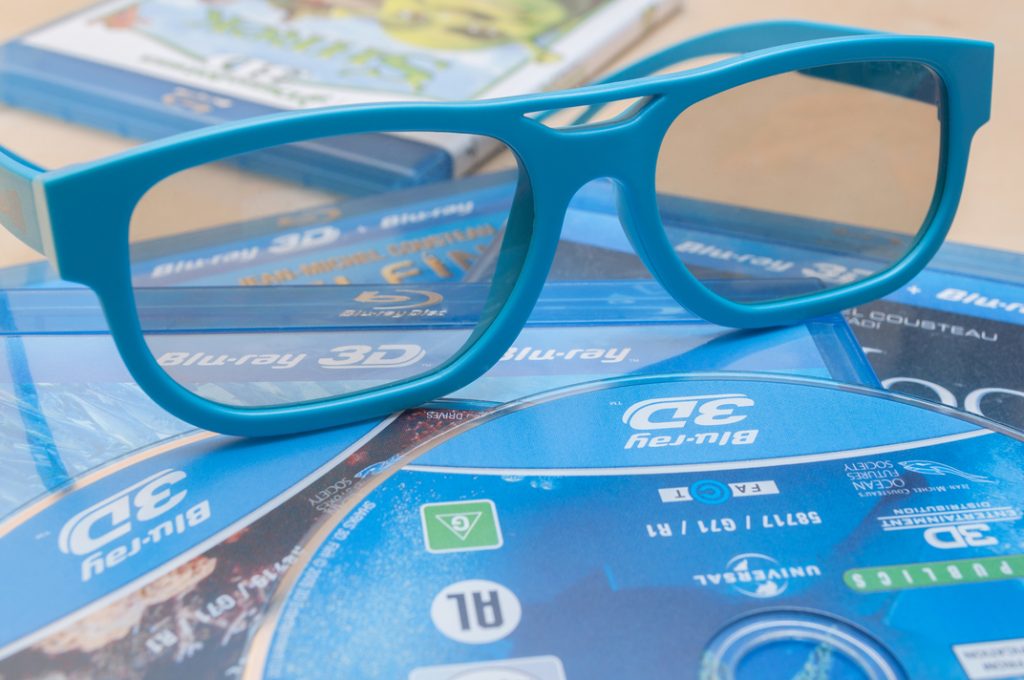In the late 90s and early 2000s, a new kid on the block emerged to kick VHS to the curb. It was shiny and new, smaller and more compact, it was the Digital Versatile Disc, better known as the DVD.
For twenty years, VHS enjoyed a comfortable spot as the most beloved home entertainment system. As well as being able to record home movies and family footage, VHS tapes could be bought pre-recorded with all the latest Hollywood releases. Heading down to Blockbuster to pick out a VHS film to watch with the family became the hottest thing to do on a Friday night. How could such a popular and beloved format have become so obsolete?

When Did DVDs Take Over?
DVDs were invented and developed in 1995, but it wasn’t the first version created. As early as the 1960s, optical recording technology was patented, it was known as LaserDisc. CD Video then followed in the late 80s, and in the 90s Compact Discs – backed by Philips and Sony – and Super Density Discs (SD) – supported by Toshiba, Time Warner, Matsushita Electric, Hitachi, Mitsubishi Electric, Pioneer, Thomson, and JVC – followed. Keen to avoid a format war similar to that of VHS vs Betamax, a researcher from IBM convened a group of computer industry experts referred to as the Technical Working Group (TWG).
In August 1995, an ad-hoc group formed from five computer companies – IBM, Apple, Compaq, Hewlett-Packard and Microsoft – issued a press release stating that they would only accept a single format. The TWG voted to boycott both the Compact Discs and SD unless they could agree on a single, converged standard. Philips and Sony decided to end the format war and agreed to unify with companies backing the Super Density Disc to release a single format with technologies from both. This compromise resulted in what became the standardised DVD.
Home entertainment distributors very quickly adopted the DVD format to replace VHS tapes as the primary consumer digital distribution format. It was praised for its higher video and sound quality, superior lifespan and the fact that it could be interactive. Around the same time, the model for home entertainment release drastically changed, with the rental model being replaced with a purchase model.
DVD players soon dropped drastically in price, making them more accessible than ever. Following the adoption of the standardised DVD format, two of the four leading video games consoles – Sega and 3DO Company – said they had plans to design a gaming console with DVDs as the source medium. The Playstation 2, Xbox and Xbox 360 use DVDs as their source medium for games and other software. Contemporary games for Windows were also distributed on DVD.
In the mid-2000s, several retail chains in the US and Europe announced they would stop selling VHS equipment. DVD players began outselling video recorders in 2002 and could be found in 90% of British homes. The last known company to manufacture VHS equipment was Funai of Japan, which only ceased production of VHS equipment in July 2016, citing falling sales and a shortage of components.

Are VHS Tapes Still Used Today?
Whilst some manufacturers continued to make combination DVD and VHS units even after the decline of the VHS, today this is not the case. No British retailer stocks new VHS tapes, and they can typically only be found in charity shops or for sale on sites like eBay. Some online retailers like Amazon still sell new and used pre-recorded VHS tapes of television shows and films, but none of the major Hollywood studies typically issue releases on VHS – the last major studio film released on VHS in the US was A History of Violence (2006), as part of its marketing promotions.
Whilst some people might be avid collectors of VHS tapes, it’s unlikely to see a revival akin to the likes of vinyl.
Why Are DVDs More Popular than VHS Tapes?
There are a number of key benefits to DVDs that saw their popularity soar over that of the VHS:
- Better picture and sound quality
- Ability to skip scenes and restart the film with one button
- Interactive menu
- Additional footage such as outtakes and director’s commentary
- Can be played on various devices
- Longevity
- Slim and compact
Put simply, DVDs are just superior to VHS tapes in every way. The only slight advantage VHS tapes possibly have is that you can fast-forward through any adverts, such as film trailers, whereas some DVD releases don’t allow these to be skipped. However, when compared to every other advantage DVDs have over VHS, it really is no competition.
Today, DVDs face competition from the likes of Blu-Ray technology. However, unlike previous format wars, this one isn’t as cut and dry. DVD production still hasn’t wound down; Blu-rays are proving to be slow to be adopted due to their cost, and most consumers are thought to be satisfied with DVDs, so they don’t see the point in switching to Blu-ray.
Additionally, some older shows are thought impossible to give a Blu-ray release, as the SD standards they were filmed in at the time were baked into the final cuts. The labour intensive and costly process of releasing Star Trek: The Next Generation on Blu-ray was a financial failure for Paramount, resulting in them deciding against giving Deep Space Nine and Voyager the same treatment.


